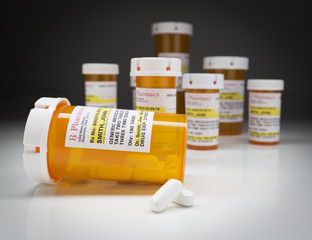There is nothing inherently illegal about possessing a prescription drug, given that it was prescribed to you by a practicing and authorized medical professional. However, the way you behave once you have the prescription drugs in your possession can lead to criminal charges if you are not careful. Some prescription drugs are mild and can even be purchased over the counter without approval from a doctor. However, many are powerful and addictive. If you are facing charges drug-related charges, a Bergen County prescription drug possession defense attorney can help.
How Can Prescription Drugs Lead to Criminal Charges?
Possessing prescription drugs can lead to criminal charges in a few different ways. You could face serious penalties including jail time if you participate in any of the following crimes related to prescription drugs.
- Illegal possession: The act of possessing prescription drugs without a valid prescription (besides for doctors or medical professionals in an appropriate setting) is a serious crime.
- Illegal distribution: It is illegal to distribute or sell prescription drugs without proper licensing and authorization. Doing so is a crime, even if you were simply giving a friend medication that you were legally prescribed.
- Prescription fraud: Committing any type of fraudulent action in an attempt to procure prescription drugs is illegal and can result in an arrest.
- Forging a prescription: Filling out a blank prescription pad when you are not authorized to do so is illegal, as is creating any type of fraudulent document or story to obtain controlled drugs.
- Theft: Stealing someone else’s prescribed medication, a blank prescription pad, etc. is a serious crime.
- Intoxicated driving: Some drugs, like powerful sedatives or opioids, can have side effects that impact your ability to safely operate a motor vehicle. Slow reaction times, impaired vision, and more can lead to an arrest for driving under the influence.
Any of the above can lead to an arrest and conviction, causing you to have a criminal record and face other severe penalties.
What Are the Penalties for Prescription Drug Crimes?
Although they will vary depending on the unique circumstances of each case, the following are general penalties you can face for prescription drug crimes in New Jersey.
Possession (five or more doses):
- Fourth-degree offense
- Fines up to $10,000
- 18 months in prison
Distribution (100 or more doses):
- Second-degree offense
- Fines up to $300,000
- 5 to 10 years in prison
Fraud:
- Third-degree offense
- Fines up to $50,000
- 3 to 5 years in prison
Forging a prescription:
- Third-degree offense
- Fines up to $50,000
- 3 to 5 years in prison
Theft (when combined with fraud or forgery):
- Third-degree offense
- Fines up to $100,000
- 3 to 5 years in prison
Intoxicated driving:
- Traffic offense
- Fines up to $500
- 30 days in jail
- Loss of license
- Mandatory drug education programs
- Mandatory use of an ignition interlock device
To avoid these consequences work with an experienced drug defense attorney during your case.
